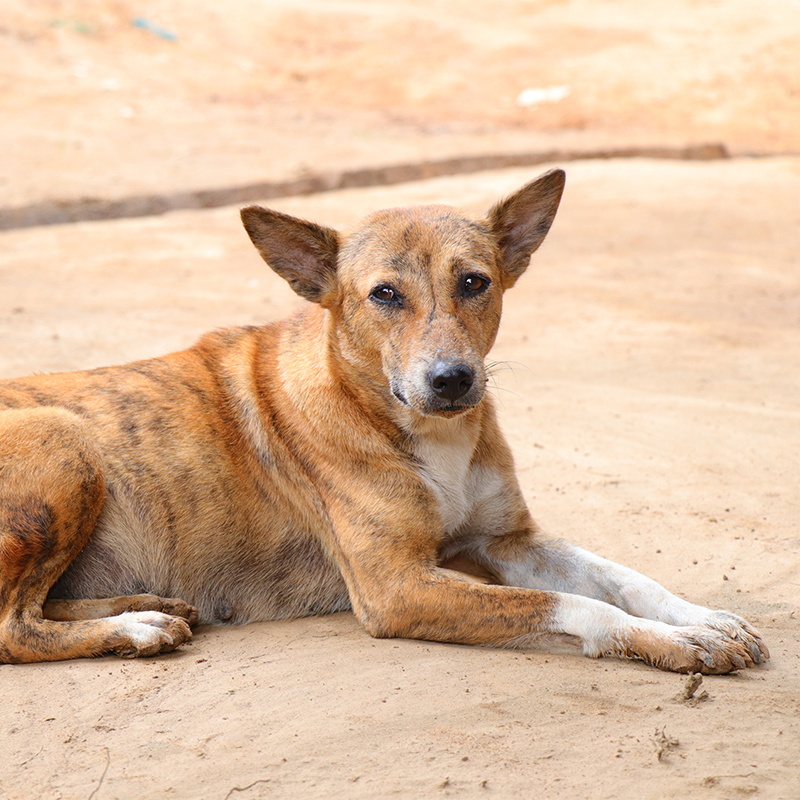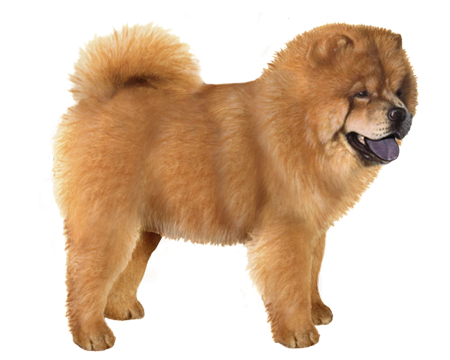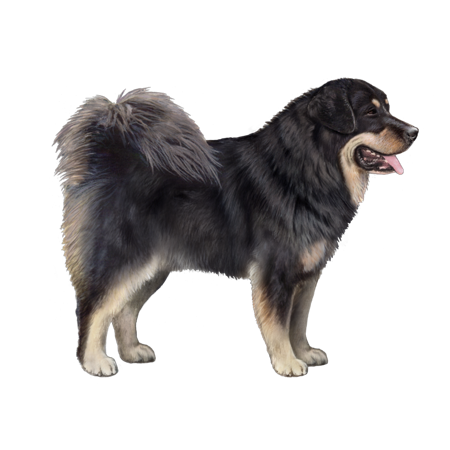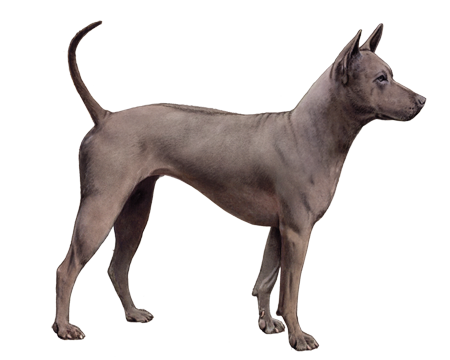
Indian Street Dog
Indian street dogs are friendly, alert pups that typically congregate in cities or large towns where resources are plentiful. Though they're domesticated and share many basic traits with pet dogs, they lead primarily independent lives outdoors.
Interested in discovering if your dog is an Indian Street Dog?
Check out Wisdom Panel's DNA tests.

Indian Street Dog Traits
General Appearance
Indian street dogs are medium-sized with a square-to-slightly-rectangular build.
Coat and Colouring
The Indian street dog's short double coat consists of a coarse upper coat and soft undercoat. These pups primarily come in shades of fawn or pied (fawn with black and white). White markings on the limbs and tail tip are common. Pied dogs typically have spots on their undercoats.
Distinctive Physical Traits
Indian street dogs have medium-sized, wedge-shaped heads, pointed muzzles, dark brown, almond-shaped eyes, and erect, pointed ears. They carry their curled tails high when they're excited.
Indian Street Dog Temperament
Naturally intelligent, Indian street dogs are capable of surviving on their own. They can be escape artists and are capable of climbing to high places. So, tall fences and close supervision are necessary to contain these wily pups.
Indian street dogs are alert and social, but they may be uncomfortable around strangers. They're typically territorial and quick to bark if something catches their attention—making them excellent guard dogs.


Indian Street Dog History
Like all dogs, the Indian street dog is a descendant of the gray wolf. At some point, a number of wolves became domesticated (but experts disagree on exactly when and how).
By the 19th century, people began recording their efforts to selectively breed dogs for certain traits—a practice that led to the hundreds of purebred dogs we know and love today. But the majority of dogs around the world do not belong to a particular breed. This includes Indian street dogs.
These landrace dogs have existed in India and Bangladesh for thousands of years. Also known as INDogs (short for Indian Native Dog), they served as hunting partners and companions to aboriginal people dating as far back as the Late Stone Age. Physically, they resemble some of the oldest fossils of domesticated dogs found in Israel and China.
Nowadays, most of these dogs roam the streets (though some do live as pets). They form communities within the neighborhoods they frequent and are often friendly and loving toward people who show them affection.
Indian Street Dog Care
Nutrition
Free-roaming Indian street dogs' diets typically consist of whatever they can kill or find—small farm animals, scraps from trash cans, handouts from kind strangers, and so on. If you're leaving food out for a street dog, they'll benefit from commercial diets formulated for pet dogs.
Because they fend for themselves, street dogs aren't usually at risk of becoming overweight. However, if you take a street dog under your roof, keep an eye on their food intake to avoid overfeeding. Guidelines on dog food packages are a good starting point when determining daily portions.
Grooming
If you've adopted a street dog that's comfortable being handled, regular brushing and nail trims will help them look their best. Good dental hygiene is also important for any dog. Professional cleanings and at-home dental care will keep their mouths healthy and reduce the risk of related health issues.
Exercise
Indian street dogs are active pups that need daily exercise. Long walks on a leash and play sessions inside a fenced yard will help them stay physically and mentally fit.
Training
These smart dogs have an independent nature. They're typically easy to train, but they get bored quickly. So, keep training sessions short and varied to help them stay engaged.

Breed Group
Asian and Oceanian
The Asian and Oceanian group is comprised of breeds whose origins lie in Asia, which have spread as far as Australia, the islands of the Pacific, and the Arctic. This group is possibly the most ancient of all breed groups and were bred for a variety of purposes, including guarding, hunting, and as draft dogs.
Resources
https://padsociety.org/breed-profiles/indog/
http://indog.co.in/breed-standard-of-the-indian-native-dog/
Reviewed 16 June 2021 by Annette Louviere, DVM












































